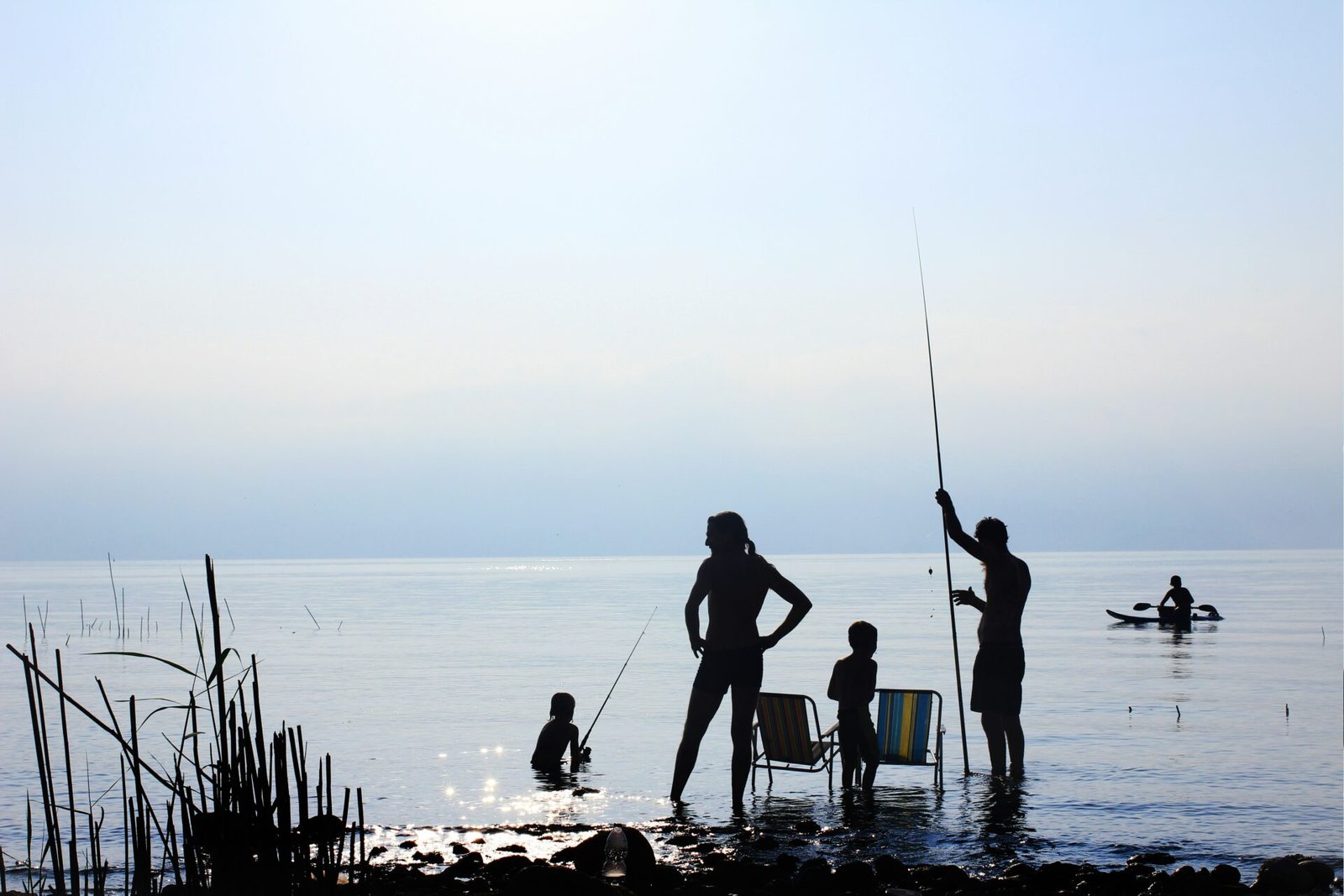Picture this: your family vacation dates were set months ago, but now they’re colliding with your child’s final exams. You’re torn between disappointing your family and jeopardizing your child’s academic success.
This scenario affects thousands of families yearly, creating stress that ripples through entire households. The good news? With careful planning and the right strategies, you can successfully balance both priorities without compromising either experience.
Pre-Travel Planning Strategies for School-Age Kids During Exam Season
Preparation for success begins well before the trip itself. Ensuring your child gets a full night’s sleep before a big day can make a world of difference in their mood, focus, and overall experience. Building these small, but important habits into your travel planning helps set the tone for a smoother, more enjoyable journey for the whole family.
Academic Calendar Coordination Techniques
Start by mapping out exam schedules at least 8-12 weeks before your departure date. Contact your child’s teachers directly to understand not just test dates, but also major project deadlines and review periods.
Many schools provide academic calendars online, but these don’t always reflect last-minute changes or individual teacher adjustments. Create a master calendar that includes buffer days before and after major exams. This approach gives you flexibility if dates shift unexpectedly.
Don’t forget to factor in study group sessions or tutoring appointments that might be crucial for your child’s preparation. These collaborative learning opportunities often can’t be easily rescheduled.
Essential Parent Travel Checklist for Exam-Period Trips
Your parent travel checklist needs special additions when exams are involved. Beyond typical travel documents, you’ll need copies of current syllabi, assignment sheets, and contact information for all teachers.
Pack a portable file organizer containing important academic paperwork. Include medical records if your child has accommodations for test-taking, such as extended time or quiet environments. Emergency contact lists should include school administrators and guidance counselors.
Consider creating a digital backup of all documents stored in cloud services. This redundancy ensures access even if physical papers are lost or damaged during travel.
Destination Selection Criteria for Educational Continuity
Not all destinations are created equal when you’re managing travel during exams. Reliable internet connectivity isn’t just helpful—it’s essential for maintaining academic continuity.
Research your accommodation’s internet speeds before booking.
Many hotels advertise Wi-Fi but provide insufficient bandwidth for video calls or large file downloads. Look for properties that specifically cater to business travelers, as they typically invest more in robust connectivity.
Time zone differences can work for or against you. A three-hour difference might allow morning study sessions before family activities, while larger gaps could disrupt established sleep routines critical for exam performance.
Managing Study Routines While Traveling with School-Age Kids
Maintaining academic momentum while exploring new places requires intentional structure. The key lies in creating flexible routines that adapt to travel schedules without sacrificing educational priorities.
Mobile Study Station Setup Essentials
Transform any space into a productive learning environment with the right portable setup. Pack a lightweight folding desk or lap desk that provides a stable workspace anywhere from hotel rooms to airport lounges.
Noise-canceling headphones aren’t just for entertainment—they’re academic tools that help maintain focus in unfamiliar, potentially distracting environments. Include a small basket or organizer for supplies like pens, highlighters, and sticky notes.
Ergonomic considerations matter even more during travel, when kids might study in less-than-ideal locations. A portable document stand reduces neck strain during reading sessions, while a small pillow can provide lumbar support.
Schedule Management Techniques for Travel Days
Balancing sightseeing with study commitments can be challenging, especially when upcoming exams are on the horizon. Teachers often feel pressure to ensure students are fully prepared, and this stress can easily be sensed by students, increasing their anxiety. Creating a calm, well-structured study environment becomes essential in helping students stay focused, confident, and ready to perform at their best.
Morning study sessions often work best when minds are fresh and family activities haven’t begun. Block out 60-90 minutes each morning for focused academic work before transitioning to vacation mode.
Use travel time strategically. Long flights or car rides provide natural study opportunities, though motion sickness considerations might limit effectiveness for some children. Audio review materials can work better than written work during transit.
Leveraging Best Online Tutoring During Travel
For families on the move, the best online tutoring platforms are an incredibly valuable way to maintain academic continuity and help your child stay on track, even far from their usual learning environment. These services provide consistency and expert guidance regardless of your location.
Schedule virtual tutoring sessions during your trip’s downtime—perhaps while other family members nap or during evening hours. Many platforms offer flexible scheduling that accommodates different time zones.
Look for tutoring services that provide session recordings. This feature allows review later and helps parents stay informed about their child’s progress even when they can’t sit in on sessions.
Stress Management and Emotional Support During Travel
School-age kids’ travel advice must address the emotional challenges that arise when academic pressure meets travel excitement. Children often struggle to manage these competing demands without proper support.
Recognizing and Addressing Exam Anxiety on the Road
Travel can amplify existing test anxiety in unexpected ways. Unfamiliar surroundings might trigger stress responses that don’t surface at home, making it crucial to recognize early warning signs.
Watch for changes in sleep patterns, appetite, or social behavior. Some children become clingy when overwhelmed, while others withdraw. Neither response is wrong—both signal a need for additional support.
Create calming rituals that can be performed anywhere. Deep breathing exercises, progressive muscle relaxation, or even simple stretching routines help manage stress responses when they arise.
Creating Comfort Zones in New Environments
Pack familiar items that provide emotional security during study sessions. This might be a favorite blanket, special pen, or even a small stuffed animal for younger children.
Establish consistent study locations within your accommodation. Using the same spot each day creates psychological familiarity even in new surroundings. If possible, face the same direction or use similar lighting each time.
Maintain some home routines even while traveling. Perhaps it’s the same pre-study snack or a particular playlist that signals focus time. These small consistencies provide stability amid constant change.
Technology and Connectivity Solutions for Academic Continuity
Modern tips for traveling with school-age kids must address technological needs that didn’t exist for previous generations. Reliable connectivity isn’t a luxury—it’s a necessity for academic success.
Essential Tech Stack for Remote Exam Preparation
Pack redundant internet solutions to avoid connectivity disasters. A portable hotspot provides backup when hotel Wi-Fi fails, while international data plans ensure connectivity abroad.
Battery management becomes critical when devices serve academic purposes. Portable charging banks, multiple charging cables, and universal adapters prevent tech failures during crucial study sessions.
Cloud storage solutions keep important files accessible across devices. Teach children to save work frequently and sync across platforms to prevent data loss during travel.
Virtual Classroom Participation While Traveling
Many schools now expect continued participation in virtual classes even during travel. Set up dedicated spaces for video calls with appropriate lighting and minimal background distractions.
Test camera angles and audio quality before important virtual sessions. Hotel rooms often have challenging acoustics that can interfere with communication during online classes or tutoring sessions.
Coordinate with teachers about participation expectations. Some may offer flexibility for students traveling across time zones, while others maintain strict attendance policies regardless of circumstances.
Emergency Preparedness and Contingency Planning
Even the most careful planning can encounter unexpected challenges. Smart families prepare for various scenarios that might threaten academic goals.
Academic Emergency Response Protocols
Establish communication protocols with schools before departure. Know exactly who to contact if technology fails, illness occurs, or other emergencies threaten exam preparation.
Create documentation proving travel dates and circumstances. Some schools require formal verification if missed classes or altered exam schedules become necessary due to travel complications.
Research local resources at your destination. Libraries, internet cafes, or coworking spaces might provide backup study environments if accommodation options fail.
Health and Safety Considerations for Studying Travelers
Travel stress can compromise immune systems right when academic performance matters most. Prioritize sleep, nutrition, and hydration throughout your trip.
Pack a basic first-aid kit including common remedies for headaches, stomach upset, or cold symptoms. Minor illnesses that might not derail vacation plans can seriously impact study effectiveness.
Consider travel insurance that covers academic-related changes. Some policies reimburse costs if trips must be cut short due to academic emergencies.
Age-Specific Tips for Traveling with School-Age Kids During Exams
Different developmental stages require tailored approaches to balancing travel with academic responsibilities. What works for elementary students might frustrate teenagers.
Elementary School Travelers (Ages 6-10)
Younger children need more structure and supervision during travel study sessions. Break study periods into shorter chunks, with frequent breaks for movement or snacks.
Make learning interactive and engaging. Educational travel activities can supplement traditional study methods while maintaining academic momentum. Museum visits might reinforce history lessons, while nature walks could support science concepts.
Use reward systems that acknowledge both academic effort and travel cooperation. Simple sticker charts or privilege systems help maintain motivation across both domains.
Middle School Students (Ages 11-13)
Pre-teens crave independence while still needing significant support. Involve them in creating study schedules and choosing study locations within your itinerary.
Peer connections become increasingly important at this age.
Facilitate virtual study groups or check-ins with classmates to maintain social academic connections during travel. Address hormonal and emotional changes that might be amplified by travel stress. Middle schoolers often experience mood swings that travel disruption can intensify.
High School Students (Ages 14-18)
Teenagers can handle more responsibility for managing their academic obligations during travel. However, they might also resist parental oversight more strongly. Discuss college implications if grades might be affected by travel. Help teens understand long-term consequences on still enjoying family experiences.
Respect their need for privacy and independence while maintaining necessary academic accountability. Find compromise positions that honor both developmental needs and practical requirements.
Post-Travel Reintegration and Academic Recovery
The transition back to regular routines often proves more challenging than the travel itself. Smart planning addresses this often-overlooked phase.
Smooth Transition Back to School Routines
Schedule return travel with buffer time before resuming normal school attendance. Jet lag, travel fatigue, and readjustment stress can impact academic performance for several days after return.
Reconnect with teachers and classmates promptly upon return. Share any insights or experiences from travel that might enrich classroom discussions while catching up on missed material.
Gradually resume normal study routines rather than jumping back into intensive schedules immediately. Allow time for readjustment while maintaining academic momentum.
Performance Assessment and Learning Retention
Evaluate what worked well and what needs improvement for future travel during academic periods. Document successful strategies and note areas needing adjustment.
Review academic performance after return to identify any gaps created by travel disruption. Address these promptly through additional study, tutoring, or teacher consultation.
Use travel experiences to enhance learning when possible. Written reports, presentations, or projects incorporating travel insights can transform potential academic disruption into educational opportunities.
Your Questions About Exam-Period Travel Answered
1. Can my child maintain academic performance while traveling during exam season?
Yes, with proper planning and realistic expectations. Success requires balancing study time with travel activities while maintaining consistent routines and support systems.
2. How do I handle teacher resistance to travel during important academic periods?
Communicate early, demonstrate academic commitment through detailed planning, and offer compromise solutions like extended deadlines or alternative assessment arrangements when appropriate.
3. What if technology fails during crucial online exams or tutoring sessions?
Prepare backup connectivity solutions, identify local resources, maintain school communication, and consider travel insurance covering academic disruptions for peace of mind.
Making Travel and Academic Success Work Together
Balancing travel with exam preparation doesn’t require choosing one over the other. With thoughtful planning, clear communication, and flexible strategies, families can create enriching experiences that support both academic goals and memorable adventures.
The key lies in recognizing that both priorities matter and deserve careful attention. When done well, travel during exam periods can enhance learning by providing new perspectives and demonstrating real-world applications of academic concepts.
Image: Unsplash, Adam Sherez












